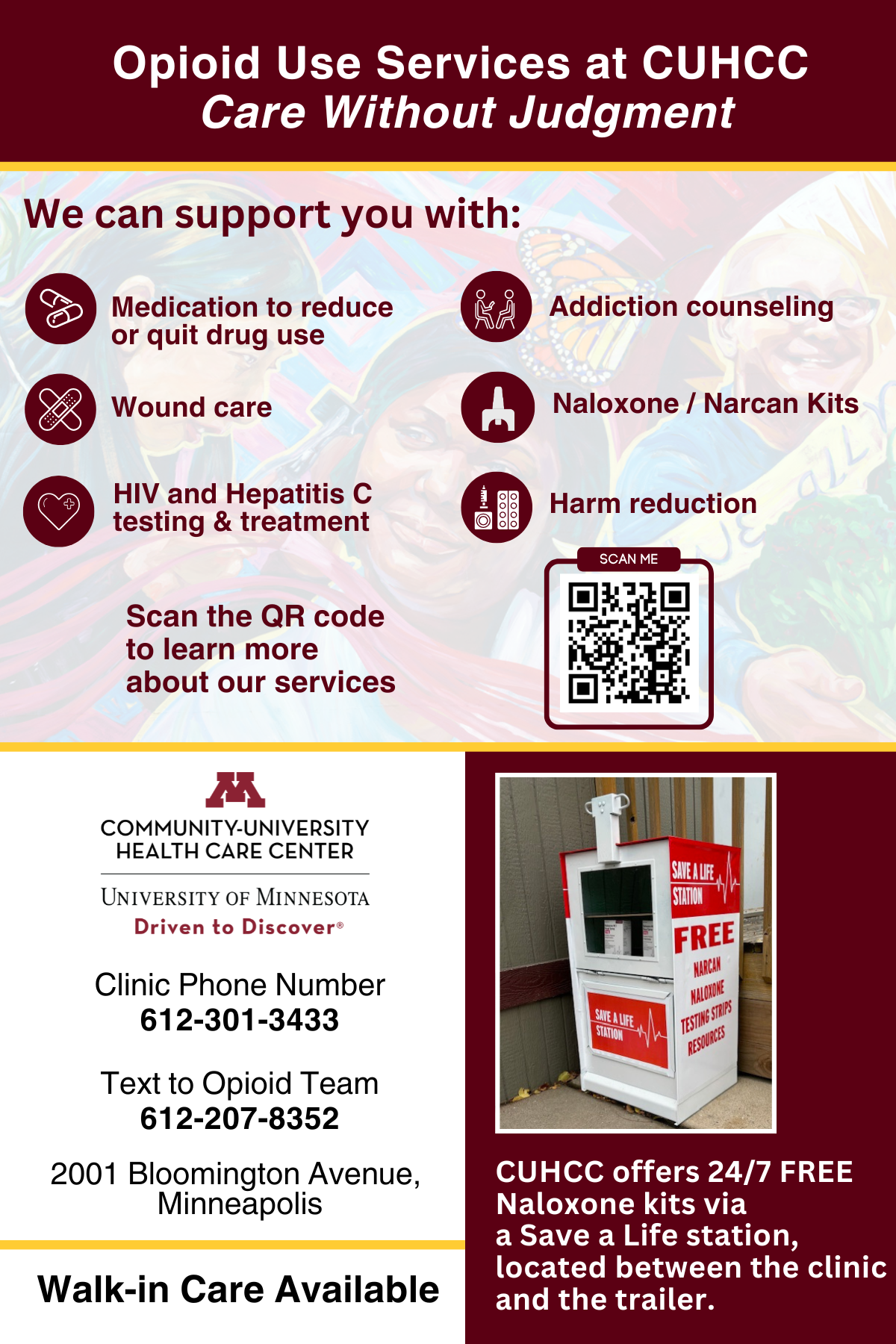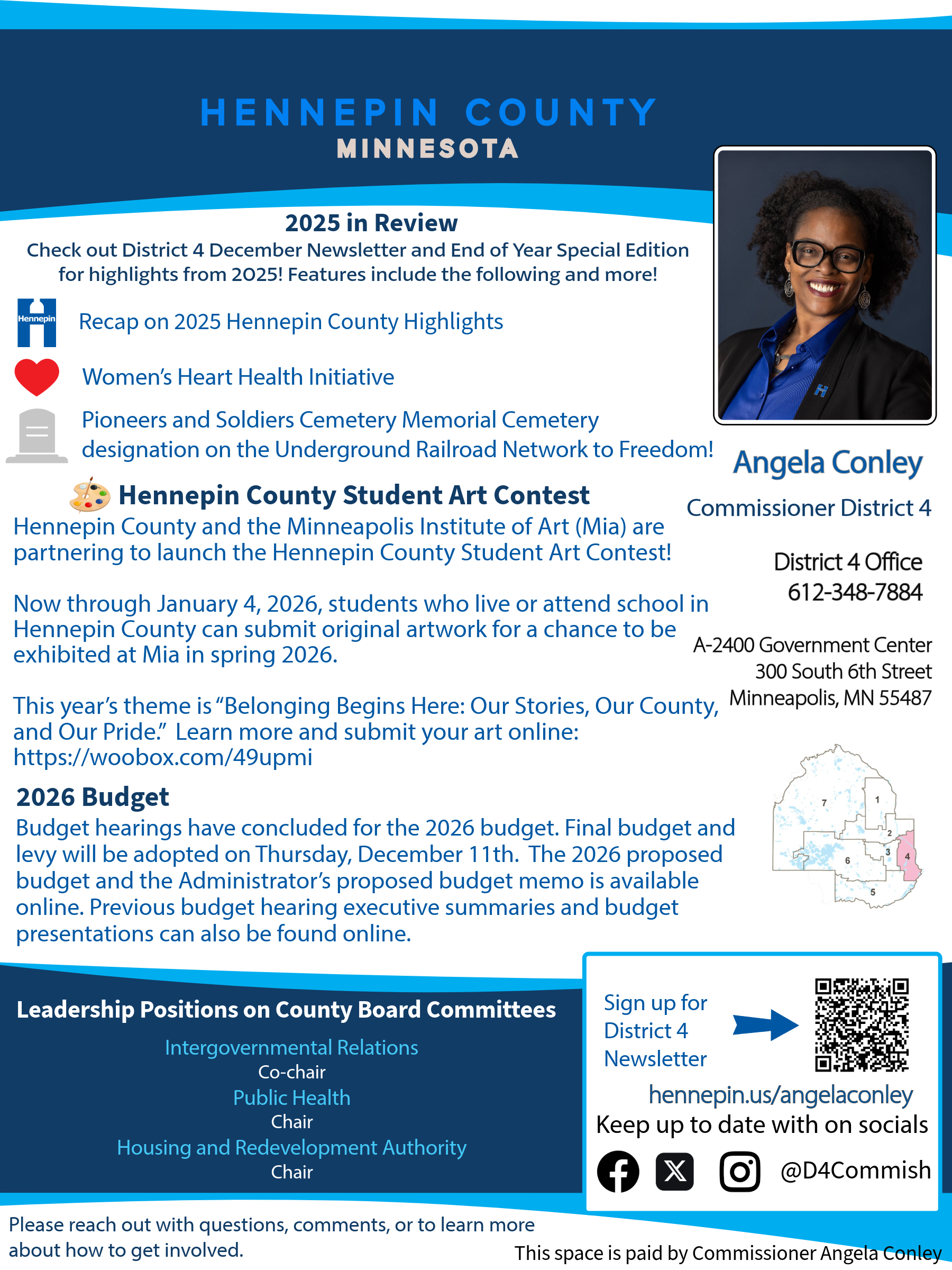Safe, affordable housing sought by descendants on land ancestors honored for millennia

CAMILLE GAGE
BULLETIN! Council approves Site! 4 PM Sept. 26th
11 MN tribal nations Leaders, Gov. Mark Dayton, and Mayor Frey met; tribal leadership offered 2109 Cedar Av So., 1.25 acres, owned by Red Lake Nation (was Ambles), for a  Navigation Center. All 11 tribal nations supported that site. Frey said: “Thank you tribal leadership, particularly Red Lake Nation. Today”'s Council vote reaffirms that site is culturally appropriate and equipped to provide for the safety and health of people at the Franklin/Hiawatha Encampment. The City will prepare the site and work with the native community for a smooth transition while protecting everyone’s health and safety.” HN Cty, nonprofit partners and community will develop and implement the services at the Navigation Center with support from the City. The Encampment will remain until Center opens this Fall. City and coalition partners recommended a new transitional housing program for Native Americans experiencing chronic homelessness.
 By PATINA PARK
By PATINA PARK
Published with permission from Pollen Midwest; originally published at pollenmidwest.org
Minneapolis is on Dakota Land in MniSotaMakoce (Land where the water reflects the sky) and is now home to many Native people from across the state and across the country. The water, trees, and all living things growing out of the ground carry with them the spirit of the original Dakota inhabitants because this ground is quite literally saturated with the DNA of our Indigenous ancestors. These ancestors lived here for millennium before Minneapolis even became a city. This land continues to be sacred land for many of the Urban Native population.
Despite hundreds of years of trauma and genocidal actions against us in this country, Native people are still here. We are resourceful, resilient, and committed to our community, families, and our cultures and traditions. However, we still face many challenges. Homelessness, chemical dependency, mental and physical health struggles, vulnerability to exploitation and violence are all by products of the generations of trauma experienced by our relatives. Though we are less than 2% of the population, we experience disproportionate rates of all these effects.
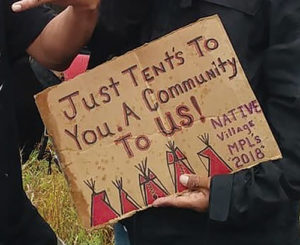
FABIAN JONES
A simple cardboard sign with a profound message to people passing the “Wall of Forgotten Natives” at the Franklin/Hiawatha Encampment as medical and security issues are addressed and deliberations continue to alleviate the plight of many people temporarily and more permanently.
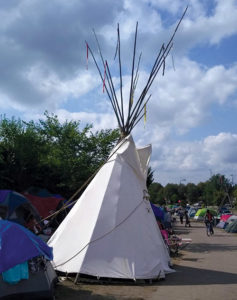
CAMILLE GAGE
Traditional tipis, modern tents, and some make-shift shelters are crowded in a long, but confined space along the Hiawatha Av. sound wall where hundreds of people have gathered forming a community that has “become known as the Franklin/Hiawatha Encampment, or for some, the Wall of Forgotten Natives.”
In recent weeks many of our relatives have come together and moved into tents in the area along a soundwall on the east side of Highway 55. This community has become known as the Franklin/Hiawatha Encampment, or for some, the Wall of Forgotten Natives. Our community faces significant challenges to housing and many have been “forgotten” and erased by those systems that were set up to assist them. Finding safe and affordable housing is a long-standing problem in Minneapolis. Housing shortages, rigid landlords, policies that create lifetime bans based on survival behaviors; these are just some of the things that create overwhelming barriers for many of our relatives and have created the environment for the Encampment.
In response, a broad coalition of government, nonprofit, and community partners and stakeholders are coming together to address the short-term, mid-term and long-term barriers to housing for the residents of this camp, as well as those in other camps not so visible. Working together, we hope to find housing options for the camp”'s population as soon as possible because we all acknowledge the current location is not sustainable, especially once the weather turns cold.
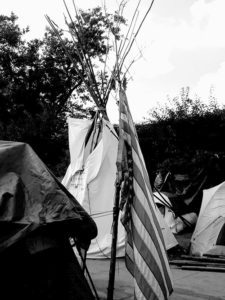
FABIAN JONES
This symbol, amidst tragic circumstances at the “Wall of Forgotten Natives,” calls for meaning from the viewer.
The Metropolitan Urban Indian Directors (MUID) is helping to coordinate this effort. MUID is a collation of leadership of Minneapolis Native organizations and urban Tribal offices and embassies. Membership represent a wide range of nonprofits including direct services, education, housing, economic development, and more. Established over 40 years ago, MUID is a partner with the groundbreaking Memo of Understanding with City of Minneapolis, which establishes a framework for the City”'s engagement with the Native community and makes this partnership viable to address the current situation.
MUID seeks to support and connect the tireless work of grassroots groups like Natives Against Heroin (NAH), the public and private sector organizations that have stepped forward to help, and the many individuals who seek to band together to create long term solutions to homelessness in the Native and broader communities. To do this we must build a sustainable, long-term, coordinated effort that acknowledges the indigenous history that frames this struggle and allows our relatives the opportunity for safe, suitable, and self-determinant housing options.
We invite all to join us in this work. Please visit www.franklinhiawathacamp.org to see how you can help and to stay informed.
Patina Park is the executive director of the Minnesota Indian Women”'s Resource Center and the current chairperson of the Metropolitan Urban Indian Directors group.
Pollen Midwest invests in human connection to fuel empathy and momentum for social change by sharing stories of critical narratives, hosting events where essential conversations happen, and linking people to new professional and personal opportunities.


